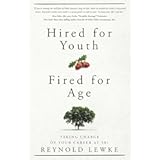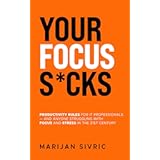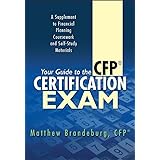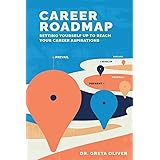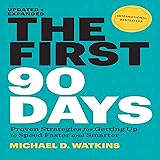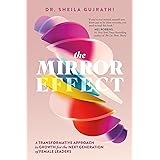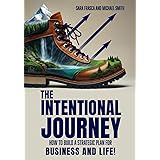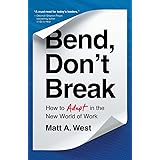Have you ever walked out of a job interview feeling like you just recited your resume, only to be met with crickets? It’s a common experience, leaving many of us to wonder if getting hired is just a matter of “luck.” However, as the insightful video above illustrates, what often appears as luck is, in fact, meticulous preparation meeting opportunity. The key to unlocking successful job interviews isn’t about being fortunate; it’s about being profoundly prepared, especially when it comes to storytelling.
Far too many job seekers enter an interview hoping to wing it, believing their qualifications alone will speak volumes. Yet, in a competitive landscape, your qualifications are often just the entry ticket. The real differentiator lies in how you connect with the interviewer, transforming a formal interrogation into a genuine conversation. This transformation happens when you move beyond generic adjectives and into the realm of compelling personal narratives.
Preparation vs. Perception: The True Path to Interview Success
The notion of “luck” in career advancement is a widespread misconception. Often, we observe individuals effortlessly landing desirable roles and attribute their success to being in the right place at the right time. However, upon closer inspection, it becomes clear that these seemingly lucky individuals have invested significant time and effort into honing their interview skills and understanding employer expectations.
True success in a job interview isn’t a random event; it’s the culmination of strategic effort. It involves researching the company, understanding the role, and, crucially, preparing thoughtful responses that showcase your unique value. The speaker in the video rightly highlights that those who get shortlisted aren’t just lucky; they are simply prepared. This preparation builds confidence and allows you to articulate your experiences in a way that resonates, making “luck” appear like a natural byproduct.
Beyond Adjectives: The Power of Your Origin Story
The perennial “Tell us about yourself” question is a classic interview opener, yet it frequently trips up unprepared candidates. Many resort to a bland recitation of their resume or a list of admirable, but ultimately generic, adjectives like “integrity” or “punctuality.” While these qualities are certainly desirable, they do little to differentiate you from a multitude of other candidates who might claim the same attributes.
Imagine, instead, painting a vivid picture with an “origin story.” This approach transforms a transactional question into an opportunity for authentic connection. An origin story, much like the compelling narratives that define superheroes or beloved brands, offers a glimpse into the formative experiences that shaped your professional identity. It provides context for your values and motivations, making them tangible and memorable.
Crafting Your Interview Narrative: A Step-by-Step Guide
To craft an effective origin story for a job interview, consider these elements:
- Identify a Pivotal Moment: Think about an early experience that sparked your interest in your field, taught you a valuable lesson, or revealed a core passion. This could be a childhood hobby, an unexpected challenge, or a mentorship experience.
- Relate It to the Role: The story shouldn’t just be interesting; it needs to be relevant. Connect your early experience to the skills, values, or challenges inherent in the position you’re interviewing for. The speaker’s Apple example, linking early adoption to an innovation role, is a perfect illustration.
- Evoke Emotion: Great stories elicit feelings. Introduce elements of struggle, triumph, curiosity, or humor. When interviewers feel an emotional connection, they are more likely to remember you and view you favorably. Remember, the goal is to activate those dopamine and endorphin responses mentioned in the video.
- Keep it Concise: While storytelling is powerful, be mindful of time. Aim for a narrative that unfolds naturally over approximately three to three-and-a-half minutes, as demonstrated in the video. This allows for depth without monopolizing the interview.
An origin story serves as a window into your authentic self, demonstrating not just what you’ve done, but who you are and why you do it. This personal insight fosters rapport, effectively shifting the interview dynamic from an evaluative interrogation to a friendly conversation, where you are seen less as a candidate and more as a potential colleague.
The Top 10 Job Interview Questions: Your Blueprint for Success
The video astutely points out that many common job interview questions are entirely predictable. Armed with insights from a recruiting expert, it’s clear there’s a set of foundational questions that you should prepare for with detailed, story-based answers. Here are the top 10 questions mentioned, accompanied by strategies for moving beyond basic responses:
- “Tell us a little bit about yourself.”
This is where your origin story shines. Instead of listing attributes, share a concise narrative that highlights a formative experience relevant to the role. Link your past passions or discoveries to your current professional aspirations and how they align with the company’s mission.
- “Tell us a bit about your strengths and weaknesses.”
For strengths, don’t just state them; illustrate them with brief STAR (Situation, Task, Action, Result) method examples. For weaknesses, choose a genuine area for development, explain specific steps you’re taking to improve, and show how you’ve already started to mitigate its impact. Avoid the cliché of “I’m a perfectionist” unless you can offer a truly unique, self-aware twist.
- “Why do you want to work here?”
This question demands thorough research. Beyond mentioning the company’s reputation, articulate specific aspects of their culture, projects, or values that genuinely excite you. Connect these to your own career goals and demonstrate how your contributions would align with their objectives. Think of it as a mutual fit, not just a one-sided desire.
- “Where do you see yourself in five years?”
Show ambition that aligns with the company’s growth trajectory. Discuss your desire to develop specific skills, take on more responsibility within their structure, and contribute to their long-term success. While it’s good to have personal aspirations, frame them in a way that demonstrates commitment to the organization.
- “Why should we hire you?”
This is your chance to explicitly connect your unique skills, experiences, and passion to the job description’s requirements. Summarize your top selling points, highlighting how you can solve their problems or add value immediately. Use concise examples to back up your claims, making it an easy choice for the interviewer.
- “Tell us about a challenge or conflict you faced at work and how you dealt with it.”
Employ the STAR method. Describe the Situation and Task, detail the Actions you took, and crucially, explain the positive Result. Focus on your problem-solving abilities, resilience, and capacity for collaboration. Ensure the outcome is positive and highlights your growth.
- “What is your greatest professional achievement?”
Select an achievement that showcases skills vital to the new role. Quantify your success with numbers, percentages, or concrete outcomes whenever possible. Frame it as a story, detailing the challenge, your unique contribution, and the impact it had on your team or organization.
- “Why are you leaving your current job?”
Maintain professionalism and focus on future growth. Frame your departure positively, emphasizing a desire for new challenges, opportunities for learning, or a better alignment with your long-term career goals. Avoid speaking negatively about past employers, colleagues, or situations.
- “How do you handle stress and pressure?”
Describe your coping mechanisms, such as prioritizing tasks, effective time management, or maintaining a healthy work-life balance. Share an example of a stressful situation you navigated successfully, focusing on your calm demeanor and problem-solving approach under pressure rather than simply stating that you “handle it well.”
- “Do you have any questions for us?”
This is a critical closing opportunity. Always have intelligent, insightful questions prepared. These should demonstrate your understanding of the company, the industry, and the role. Ask about team dynamics, future projects, company culture, or specific challenges the department faces. It shows engagement and genuine interest, not just a passive wait for an offer.
More Than Just Answers: Elevating Your Responses
Merely knowing the questions isn’t enough; the true power lies in how you answer them. Instead of delivering generic descriptions, infuse your responses with narrative depth. For example, when discussing “strengths,” rather than stating “I am a strong leader,” recount a concise story where your leadership directly resulted in a positive outcome. This transforms an abstract quality into a concrete, memorable event.
Each answer is an opportunity to tell a micro-story. This approach, similar to how a well-crafted movie trailer hints at a larger plot, allows interviewers to glimpse the full scope of your abilities and personality. Furthermore, it engages their imagination, helping them visualize you performing effectively in the role and as part of their team. Remember, people connect with stories, not just bullet points.
The Unseen Advantage: Building Rapport and Connection
The psychological impact of storytelling cannot be overstated. As the video explains, when you share a personal, relevant anecdote, you trigger the release of chemicals like dopamine, endorphins, and oxytocin in the listener’s brain. These neurochemicals are associated with pleasure, connection, and trust, fundamentally altering the interview dynamic.
A successful interview transcends a simple question-and-answer session; it becomes a conversational exchange between potential colleagues. By building rapport, you foster an environment where the interviewers see you as a valuable individual, not just a resume on paper. This sense of connection makes them more likely to advocate for you, as they are now “interviewing a friend,” rather than just another candidate in a long line of applicants for job interviews.


